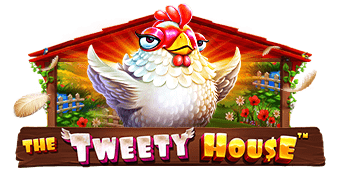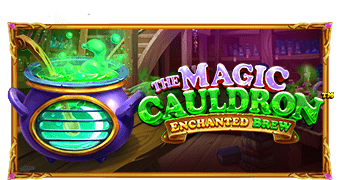SlotDemo ID – Situs Slot Demo Gratis Terbaik Indonesia
SlotDemo ID adalah Situs Slot Demo Gratis nomor satu di Indonesia yang berdiri sejak tahun 2020 dan sudah banyak merekomendasikan permainan berkualitas.
SlotDemo ID menyediakan berbagai demo slot Pragmatic Play online gratis yang bisa di mainkan langsung tanpa deposit dan tidak perlu mendaftar. Silahkan pilih slot di bawah ini, saldo tidak terbatas, mainkan sepuasnya!
Untuk saat ini permainan slot demo gratis yang kami sediakan lebih banyak merupakan Demo Slot Pragmatic Play. Untuk Provider Slot Demo lainnya akan segera kami luncurkan!
Slot Demo Gratis Pragmatic Play
Siapa SlotDemo ID?
SlotDemo ID adalah situs Slot Demo gratis terbaik di Indonesia yang menyediakan permainan slot gratis tanpa deposit! Situs ini didedikasikan untuk para pemain slot di seluruh Indonesia yang ingin mencoba sensasi seperti bermain slot sungguhan. Tidak ada batasan saldo bermain, Anda bisa bermain panjang waktu. Apabila saldo habis, silahkan refresh halaman, dan saldo akan kembali seperti semula.
Disini kami berusaha menyediakan anda Slot Demo Gratis yang berkualitas, dan kami juga mengikuti tren permainan apa yang sedang bagus dan bisa anda nikmati untuk mendapatkan keuntungan besar lebih sering, karena itu kami lebih banyak menyediakan demo slot pragmatic, karena saat ini provider tersebut lah yang banyak memberikan keutnungan besar bagi para pemain.
Untuk bermain slot demo Gratis tidak perlu untuk registrasi. Namun, Jika berminat untuk mencoba bermain dengan uang asli, kami menyediakan situs slot pragmatic play rekomendasi dengan menekan tombol daftar di banner atas.
Slot demo gratis dari SlotDemo ID ini tentu bisa dimainkan secara gratis (free), jadi Anda tidak perlu mengeluarkan modal apapun untuk bisa menikmati permainan yang tersedia dari platform yang bekerja sama dengan SlotDemo ID. Selain itu, Anda juga bisa merasakan sensasi yang berbeda ketika memainkan demo slot pragmatic, dimana mode coba dari permainan ini di Indonesia bisa tidak begitu mudah untuk anda cari dan anda nikmati.
Jika anda menikmati permainan slot online secara gratis ini, anda bisa mendapatkan permainan dengan tampilan terbaik, jarang terjadi error dan ada beberapa permainan yang bisa anda coba berulang-ulang, namun ada beberapa yang belum tentu bisa, namun permainan yang tersedia disini semuanya bisa anda nikamti dengan gratis.
Selain itu situs rekomendasi dari situs slot demo gratis ini juga sudah sangat terpercaya, anda tidak perlu takut ketika anda sudah berhasil menang besar dan mendapatkan keuntungan besar namun tidak dibayar, karena disini, anda SlotDemo ID ini bekerja sama dengan situs judi online terbesar Asia yakni 188BET.
Ayo gunakan situs ini untuk berlatih “mengalahkan” permainan slot online untuk meraup profit!
Provider Slot Demo Terbaik saat ini
Menurut kami, slot online terbaik di era ini adalah Pragmatic Play. Mereka selalu meluncurkan berbagai variasi permainan slot online terbaru yang menarik dengan bonus berlimpah. Di tambah, tema slot yang mereka punya bisa membuat orang ketagihan untuk selalu memutarnya. Semakin di spin, semakin menyenangkan.
Salah satu alasan juga mengapa demo slot pragmatic play begitu digemari adalah penampilan grafis yang sangat menarik dan tidak membosankan, jadi sebelum akan bertaruh, jangan lupa untuk mencoba fitur yang tersedia di permainan pragmatic play supaya Anda paham cara bermainnya dan menambah kesempatan menang menjadi lebih besar, dengan terdapatnya demo slot online dari pragmatic play.
Pragmatic Play selalu memberikan kejutan dengan fitur-fitur yang akan bisa membantu anda dalam permainan, namun juga bisa membantu anda mendapatkan keuntungan besar setiap kali anda bermain permainan yang mereka keluarkan, jika anda tidak yakin, bisa langsung coba Demo slot Pragmatic kami yang ada.
Karena semua kelebihan tersebut, provider satu ini tentu mengundang banyak orang yang penasaran dengan mesin slot game online yang mereka sediakan. Oleh karena itu lah, untuk para pemain yang baru terjun ke dunia slot, provider Pragmatic Play bisa jadi pilihan utama!
Selain Demo Slot Pragmatic, kami juga punya slot demo dari provider favorit lainnya, seperti:
- Playtech
- Microgaming
- Habanero
- iSoftbet
- Red Tiger
- Play N Go
- Skywind
Kelebihan Bermain Slot Demo Gratis
Beberapa kelebihan yang bisa menjadi daya tarik dari Slot Demo Gratis dari SlotDemo ID:
Tidak Perlu Mempertaruhkan Uang Asli Di Slot Demo
Jika Anda baru di dunia judi online, Anda dapat mencoba memainkan slot demo untuk bersenang-senang karena ini merupakan versi percobaan. versi ini menawarkan peluang bagus untuk mempelajari aturan dan variasi permainan sebelum Anda benar-benar bertaruh dengan uang asli.
Selain itu, slot demo gratis ini memiliki grafik kualitas tinggi dan soundtrack yang luar biasa. Anda dapat mencoba banyak permainan berbeda, dari slot dengan tema menarik. Anda tidak perlu mempertaruhkan uang, jadi ini cara yang bagus untuk merasakan berbagai judul tanpa mempertaruhkan uang sungguhan.
Bisa Menjadikan Slot Demo Gratis Sebagai Tutorial
Memainkan slot demo gratis adalah cara yang bagus untuk mendapatkan pengalaman dengan permainan kasino sebelum Anda melakukan deposit dan bermain dengan uang asli. Meskipun menang di mesin slot terbaru itu mengasyikkan, penting untuk disadari bahwa belajar memainkannya adalah proses yang berkelanjutan.
Mencoba tutorial ini akan membantu Anda memahami aturan dan strategi yang bisa membantu anda mencari cara menang sambil bermain secara gratis. Selain itu, Anda juga dapat mempraktikkan beberapa teknik terbaru sebelum menggunakan modal.
Banyak situs slot online menawarkan demo slot gratis bagi pemain untuk menguji coba layanan dan game mereka. sehingga jika anda kesalahan dalam game yang bisa merugikan untuk sisi anda, maka anda sudah bisa tahu secara langsung.
Mereka memungkinkan Anda memahami aturan permainan
Keuntungan dari slot demo adalah memungkinkan Anda untuk mencoba permainan sebelum mengeluarkan uang. Sama seperti Anda tidak akan memainkan permainan sepak bola Premiership jika ini adalah pertama kalinya Anda, jangan mengambil risiko memainkan permainan slot online Premiership juga.
Slot demo seperti uji rasa untuk membantu Anda memutuskan apakah game tersebut tepat untuk Anda. Anda kemudian dapat memutuskan apakah perlu mengeluarkan uang untuk itu.
Banyak situs slot online menawarkan mode permainan gratis bagi para pemain untuk memahami aturan permainan sebelum mempertaruhkan uang nyata mereka.
Slot demo memungkinkan Anda untuk mengetahui aturan dan fitur permainan sebelum menginvestasikan uang sungguhan. Ini sangat ideal untuk pemain yang baru mengenal judi online. Ini juga merupakan ide bagus untuk mencoba permainan sebelum memutuskan mana yang paling cocok untuk Anda.
Memberikan Sensasi Bermain Yang Nyata
Memainkan versi demo gratis memungkinkan Anda merasakan permainan sebelum mulai bermain dengan uang sungguhan. kebanyakan orang mempercayai bahwa permainan judi online memberikan sensasi tersendiri untuk para pemain.
Ada sebagian pemain yang bermain judi online guna mendapatkan ardenalin, begitu pula dengan slot online, tentu saja ketika kemenangan anda semakin meningkat, maka sensasi yang anda rasakan akan semakin enak juga.
Cara Terbaik Untuk Berlatih Sebelum Bermain Dengan Uang Asli
Apakah Anda seorang pemula atau pemain tingkat lebih lanjut? versi demo gratis ini dapat membantu Anda meningkatkan permainan Anda dengan permainan tanpa modal, sehingga Anda dapat mencoba berbagai tema dan fitur sebelum mempertaruhkan uang hasil jerih payah Anda.
Anda juga dapat memeriksa fitur bonus sebelum melakukan deposit dengan uang nyata untuk memastikan Anda tahu apa yang Anda lakukan. versi gratis ini memungkinkan Anda untuk melihat bagaimana taruhan dan putaran Anda berubah seiring waktu.
SlotDemo ID menawarkan banyak jenis permainan slot demo gratis. Artinya, penggemar dapat melatih permainan mereka dari kenyamanan rumah mereka.
Mode Mobile Yang Stabil
Bermain menggunakan Smartphone atau mode mobile dari SlotDemo ID menawarkan versi demo gratis yang bertampilan bagus sehingga bisa dimainkan dimana saja.
Meskipun kualitasnya tidak sepertiny bermain dengan uang nyata, versi ini adalah alternatif yang bagus untuk pemula dan pemain tingkat lanjut. Dan yang utama adalah, jauh lebih aman daripada bermain dengan uang sungguhan.
Panduan Bermain di SlotDemo ID
Berikut panduan singkat tata cara bermain slot demo gratis, adalah sebagai berikut:
Cari halaman website Slotdemo.id dari Google (Jangan langsung dari website karena kemungkinan domain kami tidak bisa di akses dari Indonesia).
Di halaman utama, Anda sudah bisa melihat daftar slot online terbaik yang kami pilih.
Pilih dan tekan gambar slot yang Anda inginkan, lalu Anda akan di arahkan ke halaman khusus.
Langsung mainkan demo slot pilihan Anda.
Tidak Menemukan Slot yang Anda Mau? Hubungi Kami!
Jika Anda ingin bermain slot tertentu yang tidak tersedia di Slotdemo.id, silahkan langsung hubungi kami melalui Email yang tersedia, dan kami akan mencoba untuk menyediakanya di masa mendatang saat Anda kembali lagi ke situs kami.
Bermain dengan Bertanggung Jawab
Bermain slot bertujuan untuk mengisi waktu luang jadikan aktivitas yang menyenangkan atau hiburan, namun, kita tahu bahwa hal yang berhubungan dengan perjudian bisa membuat ketagihan dan Anda harus memastikan bahwa Anda bisa memegang kendali diri dalam bermain dan bertanggung jawab.
Permainan Rekomendasi Dari SlotDemo ID
Dalam penelusuran kami untuk permainan slot game online yang tersedia di situs 188BET, kami menemukan beberapa permainan yang tidak boleh anda lewatkan, sangat SlotDemo ID rekomendasikan kepada para pemain, dan tersedia versi Slot Demo Gratis disini.
Berikut dibawah ini permainan slot game rekomendasi dari SlotDemo ID:
- Gates Of Olympus
Permainan satu ini sepertinya sudah dikenal oleh semua kalangan pemain Asia terutama di Indonesia, karena slot game ini mempunyai fitur yang bisa membantu pemain menang besar dalam waktu yang singkat. - Starlight Princess
Merupakan slot game online dengan tema fantasi yang paling memukau, sudah terbukti dengan banyaknya ketertarikan para pemain Indonesia mencoba versi slot demo bersama kami, dan juga punya fitur yang tidak kalah membantu dengan Gates Of Olympus. - 5 Lions Megaways
5 Lions Megaways adalah permainan slot game online yang tidak terlalu populer namun bisa memberikan kemenangan besar kepada para pemain dengan fitur yang tersedia, selain itu juga anda bisa mendapatkan fitur Wild hingga menggandakan kemenangan 40x. - Mahjong Ways
Menjadi slot game online rekomendasi yang non Pragmatic Play, Mahjong Ways sukses menawarkan permainan ramah dengan ponsel, tampilan dan tema yang menarik, serta bisa membuat anda mendapatkan keuntungan besar jika terus bermain. anda bisa mencoba versi Slot Demo Gratisnya disini. - Zeus vs Hades Gods Of War
Slot Game Online keluaran terbaru Pragmatic Play ini sukses menjadi gebrakan, karena didalam permainan, anda bisa memilih 2 tipe tampilan yakni tampilan untuk Zeus yang mempunyai kesempatan menang lebih sering, dan tampilan Hades dengan kemenangan lebih besar.
FAQ (Pertanyaan Yang Sering Ditanyakan) Di Situs Slot Demo Gratis SlotDemo ID
Anda bisa klik salah satu tombol daftar yang tersedia diatas kemudian anda isi data diri yang diperlukan pada form pendaftaran di link tersebut dengan data yang jelas dan Asli. sedikit informasi bahwa kami merupakan partner dari situs besar Asia 188BET, sehingga kami merekomendasikan situs tersebut sebagai tempat anda bermain.
SlotDemo ID tidak memupunyai niatan untuk memungut biaya satu peser pun, karena memang tujuan dari situs Slot Demo ini untuk memberikan permainan versi percobaan kepada para pemain, memberikan pengetahuan permainan kepada para pemain, dan kami juga hanya memberikan rekomendasi kepada orang-orang yang ingin bermain, situs Asli, dengan game lengkap dan 100% Fair yakni 188BET.
Anda bisa mengisi kolom komentar di permainan yang error atau tidak bisa dicoba, maka admin kami akan segera melakukan perbaikkan untuk konten percobaan yang tersedia. admin kami akan mencoba secepat mungkin untuk memperbaiki konten tersebut.
Kami tidak mempromosikan situs apapun, hanya kami merekomendasikan kepada pengunjung tempat bermain yang Asli yakni 188BET, yang jika anda menang besar, maka kemenangan anda akan dibayarkan secara penuh, permainan yang tersedia didalamnya juga lengkap, dan layanan yang diberikan sangat professional.















































